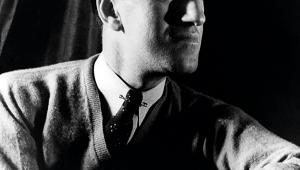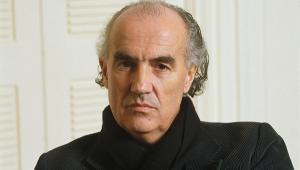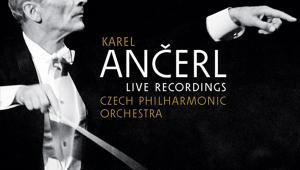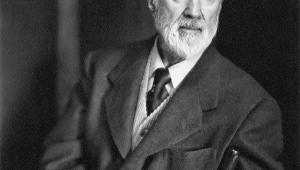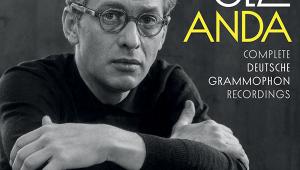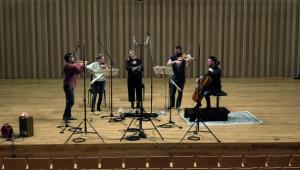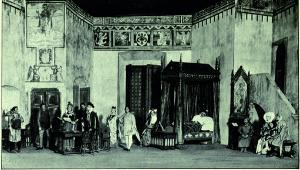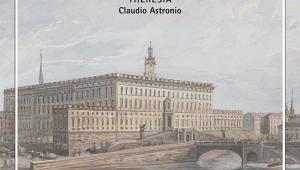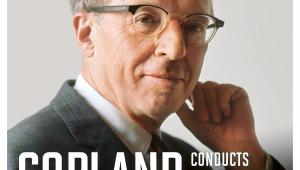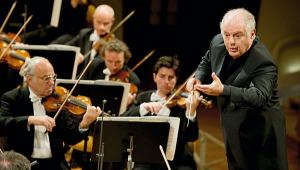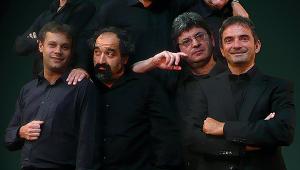Beethoven The Late Works
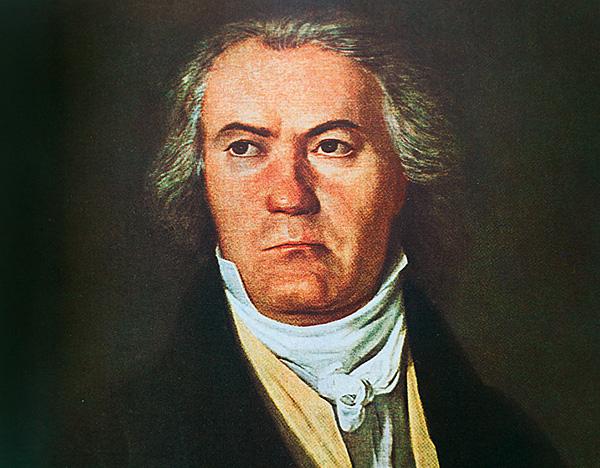
I guess the Fifth Symphony is the work that makes listeners sit up and begin to explore the music of Beethoven. Its opening dot-dot-dot-dash motif was used by the Allies as a Victory emblem for broadcasts to occupied Europe.
Perhaps if you studied the violin you might have come across the String Quartet Op.95, and would-be pianists the 'Appassionata' (Piano Conata Op.57). All three with the composer striving in minor keys…
But wind the key back to the 1930s when the pianist Artur Schnabel and the revered Busch String Quartet were giving concerts, and audiences considered the music Beethoven composed late in life 'difficult'.
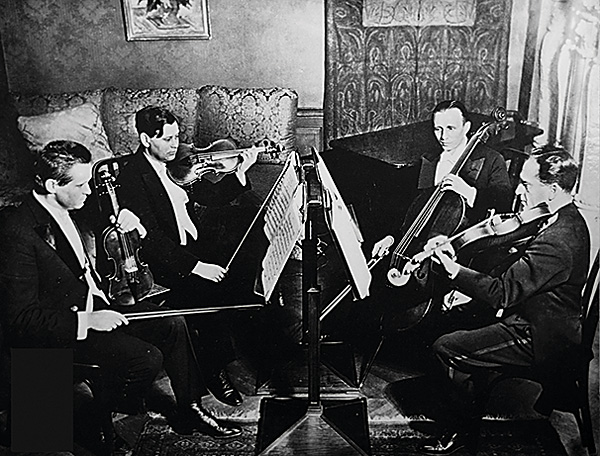
There's a much repeated true story of Schnabel playing the complete 53-minute Diabelli Variations, Op.120, as a recital encore and at the end the audience had dwindled to just two – both of them concert pianists, one being Rudolf Serkin! And it was generally held at that time that the five late String Quartets (unlike those of his 'early' and 'middle' periods) were not for the ordinary man. Of course, that kind of critical snobbishness has largely disappeared now.
Perhaps a good starting point here would be the very last, Op.135 in F – it's the shortest of the five, and the fact that, unusually, Beethoven headed his finale manuscript with a question and later answer 'Muss es Sein?' 'Es muss sein' (Must it be/It must be) is certainly intriguing. Towards the end of his life he'd switched from Italian to German for tempo markings and required expression instructions.
With the 32 Piano Sonatas, Op.81a, from 1809-10, called 'Les Adieux' (and the three movements headed Parting, Absence and The Return) is the gateway to the final group, Opp.101-111 and his 33 Variations on Diabelli's waltz theme. Anton Diabelli had invited certain composers to compile a joint work in aid of impoverished victims of the Napoleonic Wars, but Beethoven created a complex set of his own, alternating working between it and his great Mass setting, the Missa Solemnis Op.123. (He was also working on his Symphony No 9, but that's perhaps something for a later Classical Companion.)
This second Mass setting – after the one in C from 1807 – was dedicated to his patron the Archduke Rudolph (whose departure from Vienna is the theme of 'Les Adieux') with the words 'From the heart – may it return to the heart'. Both Gloria and Credo include fugal writing, as in four of the late Piano Sonatas. Beethoven also depicts the hammering of Jesus to the cross (Credo), while the intertwined lines for solo violin and flute reach for the sublime in the Sanctus.
From The Heart
Although lasting some 79m, in 1953 Vox managed to squeeze the VSO/Klemperer recording onto a single LP – albeit one with noisy pressings. I still think his EMI stereo remake is very fine [Warner Classics 2435675462] although the Penguin Guide were snooty about the solo singers and preferred a 1963 live Festival Hall performance on Testament [SBT1408; mono]. Otto Klemperer is also represented on historic versions from Amsterdam and Cologne (the former you can find on YouTube).
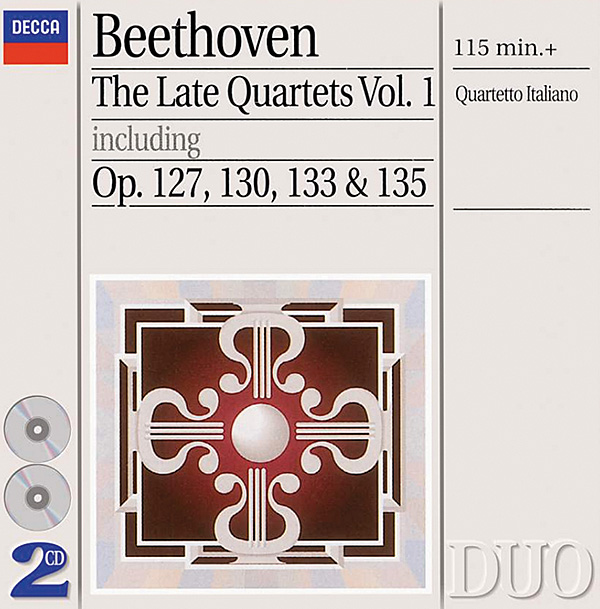
The merits/demerits of Klemperer vs. Karajan were debated by reviewers when a second studio recording by Karajan appeared [see Essential Recordings boxout] – his first, with the Philharmonia but with Viennese chorus, was EMI/Electrola's original stereo version.
I must admit to wanting to hear a large-scale Missa Solemnis as the 'historically informed' Masaaki/BIS and later Harnoncourt/Sony I don't like at all. Bernard Haitink, who was 85 when his first version entered the catalogues [BR Klassik 900130], is deeply satisfying, as is Sir Colin Davis, in a 2011 live performance from the Royal Albert Hall Proms, fortunately preserved on YouTube with his brief spoken preface.
Fugue And Variations
While the two named Violin Sonatas, the 'Spring' and 'Kreutzer' are the most popular, Beethoven's last – in G major, Op.96 – dates from a period of personal isolation and increased deafness. Dedicated again to Archduke Rudolph it's an intimate, lovely work, and the live recording by Alina Ibragimova and Cédric Tiberghien (Wigmore Hall, 2010) captures its essence beautifully [WHLIVE0041].
The finale of Op.96 comprises a set of variations: features of two of the late Piano Sonatas, Opp.109 and 111 – increasingly challenging for the player, they show Beethoven working towards music with an inner striving for the sublime. Counterpoint is another strong feature of Opp.101, 106 (the 'Hammerklavier'), 110 and 111(i).
The two minor-key sonatas open with a challenging dramatic motif whereas the others, Op.101, 109 and 110, are more lyrical. I once asked pianist Mitsuko Uchida whether the E major, Op.109, began with a question or an answer. 'Both', she replied… Her Snape Maltings recording, with Opp.110 and 111, is on Decca [475 6935; two discs]. See also YouTube for a tantalisingly short clip.
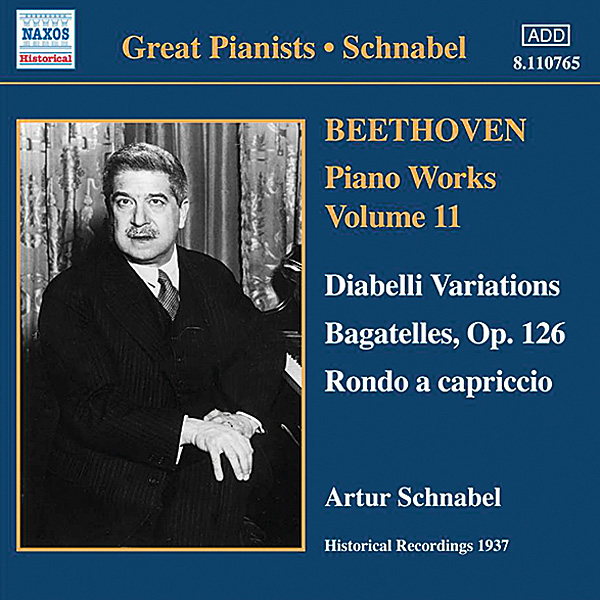
The most formidable of these works – for both performer and listener, with its slow movement typically lasting 20m – is the 'Hammerklavier', the only one of the 32 Sonatas for which Beethoven showed metronome markings. Impossibly fast for (i) it was nevertheless attempted by Artur Schnabel in his 1935 HMV 78rpm set, albeit with many a stumble [Naxos 8.110762]. Solomon's 1952 recording [see Essential Recordings] is thought by many to be unsurpassed in the Adagio – Testament has an alternative remastering from the EMI tapes with 'Les Adieux' and Op.90 [SBT1191].
The challenge of recording the late Quartets has now been taken up by the Danish String Qt, beginning with the E-flat Op.127, perhaps the most accessible starting point for listeners too [ECM 4817267 – HFN Feb '19]. It's a shame that the Hagen Quartet didn't finish their DG series but we do have all the late works. Their Op.130 excludes the alternative finale Beethoven's publisher urged him to write to replace his original double fugue (Grosse fuge, Op.133).
For this music many would opt for the Takács Quartet [Complete String Quartets; Decca 483 1607, with bonus DVD and Blu-ray audio] but for me they're too nervy. My choices would be: (young players) Belcea Quartet [Alpha ALPHA262]; Quartetto Italiano; and the earlier Tokyo Quartet cycle [RCA 88691975782], a real bargain.

